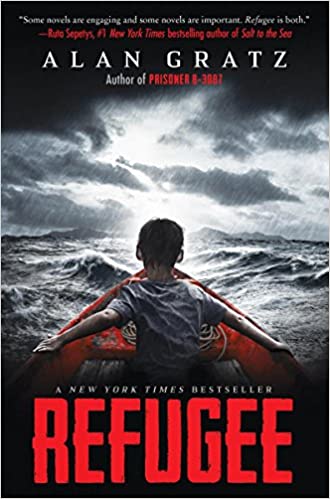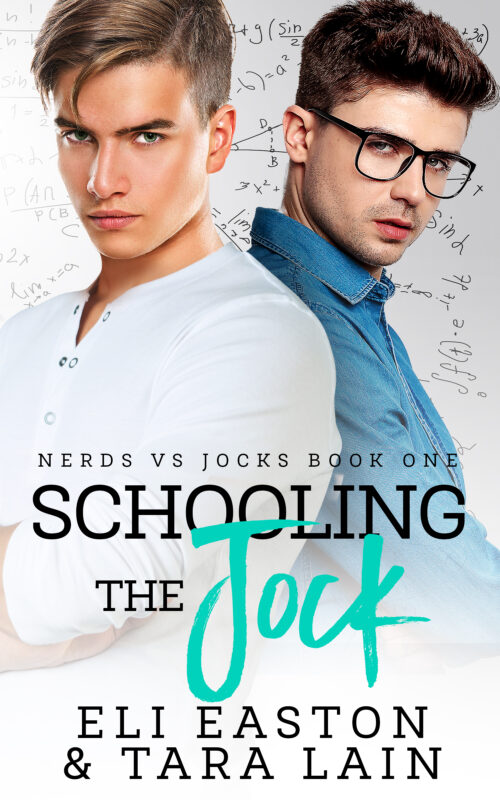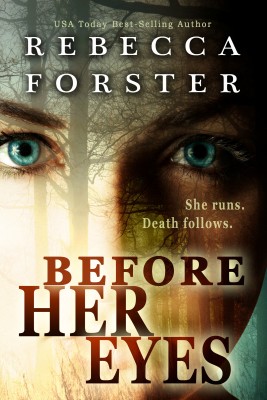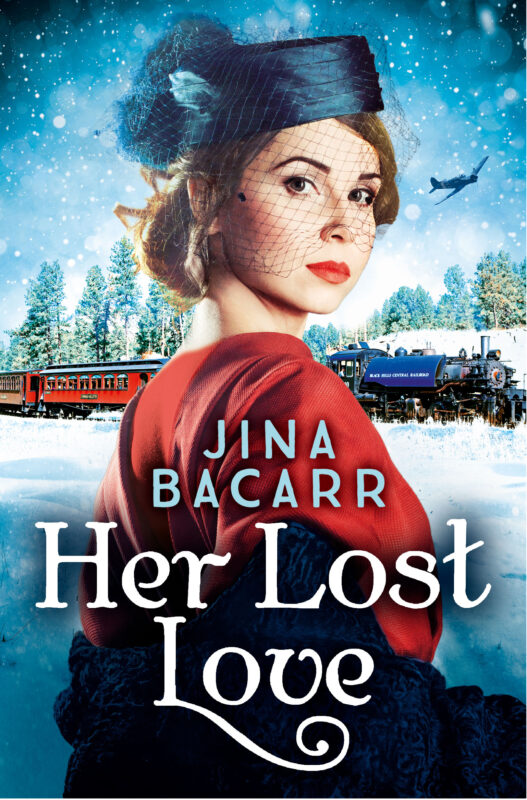Make Mine Slang by Jenny Jensen
August 19, 2021 by Jenny Jensen in category On writing . . . by Jenny Jensen tagged as characterization, language, Planning, research, Slang, Writer's Toolbox
This character, Tall T Reynolds, is growing in my mind. I can see him tanned and raw and a bit dusty. I know his world is the 1940’s rural west and I know he’s going to briefly meet Lottie, a beautiful girl in a gleaming open topped coupe. Their brief exchange will never leave his mind. Soon after, Tall T will go off to war in Europe. He and Lottie will meet again in a most unexpected way.
I want these two MCs to be drawn as very different in all ways but the heart. I want to show those differences subtly and naturally. I want to tell the story mostly in dialog, no long narratives, no narrative tells. I know that means voice and tone will have to be pitch perfect so it’s language that shows their differences, that makes each wholly human and credible. I thought about using dialect but rejected the idea. I don’t trust my skills to pull that off successfully. Besides, they are both smart and fairly well educated. This is not a rustic pauper gets the princess story. Still, they are from very different worlds – until they’re not.
After rummaging about a bit in the writer’s toolbox, I’m thinking slang as a way to initially set them apart and ultimately bring them together. Slang is an interesting critter. It’s a very flexible tool. It’s hard to pin down what is slang and what isn’t. Slang changes so fast. Yesterday’s ‘far out’ is today’s ‘snatched’, but it’s pretty clear what slang does for us. The casual use of slang terms show we’re in the know, we belong to that group who understands what it is to ‘I oop’. More to my purposes, slang is a shared affinity of age and disposition and attitude.
Slang can be subversive, playful, derisive, affectionate, even endearing – all such very human qualities – and human is what I want to show in circumstances that aren’t all that humane. Ever changing, almost updating itself to fit shifting circumstances slang morphs from common terms to become familiar to a community who is living and sharing shifting circumstances. How else explain today’s use of ‘ghost’? Slang can turn meaning topsy turvy, assigning an opposite meaning to words – an effective response to a world that feels turned upside down. To say you ‘destroyed’ something today certainly doesn’t mean to me what it means to a teen.
Because slang is a hallmark of a shared, exclusive world it’s the perfect devise to reinforce the journey of Tall T and Lottie through the chaos of a world war to a shared reality. They will be tested in ways they’ve never imagined in a world where familiar conventions don’t always apply and time can be frightfully short. At their first meeting, Lottie’s language will baffle Tall T; he will know from that brief exchange that they are from very different worlds. By the end, they will share an unspoken understanding of how fubar life can be. They’ll both know the world is cockeyed and with one exchange of peepers they’ll know where to meet because they have all the dope on the good places. They are people with plenty of moxie who become each other’s killer diller.
I will be careful though. I don’t want them to sound like they’re trying too hard to be cool, or are too stupid to express themselves in any other way. I want to salt the slang effectively, add just that kick of heat a touch of chili adds to a good stew. Like seasoning, I’m going to need a deft hand. I can imagine how clumsy a slang word could feel, or how tiresome the overuse could become. There’s a lot of revision ahead for me if I’m going to Keep it 100. Forewarned is forearmed. I’ll stop beating my gums now and immerse myself in the slang of The Greatest Generation. Roger. Wilco.
Masque, Masquerade, Mask
August 19, 2020 by Jenny Jensen in category On writing . . . by Jenny Jensen tagged as characterization, editing, writing No! I’m not going to weigh in on the mask vs no mask debate. Really.
No! I’m not going to weigh in on the mask vs no mask debate. Really.
I am an inveterate people watcher. Sometimes I go overboard and get caught staring — awkward. Honestly, it’s not you I’m looking at, it’s the potential character the physical ‘you’ suggests to me. I’m pretty sure all writers do that to one degree or another. It can’t be helped. Some people just like a (too) kindly grandmother, or a shifty con man or a fairy princess or a sharkish accountant.
Faces reveal so much, from hidden agendas to unspoken feelings, spontaneous joy to suppressed fury. It’s fertile ground for the writer. Anne Perry uses the reading of facial expressions to heighten tension and create suspense. In her hands it’s a plot device and she’s brilliant at it. Add body language to that and a character comes fully to life. It’s also a great way to stomp down those unwanted dialog tags; showing the reader who’s speaking is miles better than telling.
Just watching the emotional beats revealed on the faces of two friends having coffee can jumpstart a story and the story can shift and morph if I switch genres in my head. (Yep, I start a lot of imaginary tales. It’s more fun than Sudoku.) Narrowed eyes and rigid lips mean one thing in a spy thriller and quite another in a romance. Add the tilt of the head and a clinching of fists and it could work for either the inciting incident or the denouement.
Now most of us are masked and I have to shift my game. We’re all consciously trying to keep a six-foot distance and it makes for some very stilted body language! A woman turned from the pasta aisle just as I was turning in, our carts nearly colliding. That’s a common enough occurrance at the grocery store and usually each party smiles and laughs and maneuvers on their way. I found myself braying an exaggerated laugh, shrugging my shoulders and my “oh sorry” came out a bit over bright. It was the mirror response of this woman. We couldn’t read each other’s faces. An apologetic smile doesn’t do it any longer.
They say we need to adjust to a new normal. I’m not sure what that’s supposed to mean, but I can imagine all this maskedness and artful distancing will add some very intriguing elements to contemporary fiction. How will strangers meet and grow a romance? Is love at first sight a victim of the pandemic? How will antagonists make use of the fact that with a baseball cap, sunglasses and the compulsory mask one is virtually unidentifiable? Think of the wonderful mix-ups this could lead to. Great fodder for screw-ball comedy. Or great fodder for murder and mayhem.
It will be impossible to ignore Corvid in writing contemporary stories. At the very least it will have to serve as atmosphere, but there are elements of this awful reality that present nearly endless plot possibilities — as nearly endless as this shutdown feels. I can’t wait to read them.

Jenny Jensen
Editor
0 0 Read moreAm I really that shallow? by Denise M. Colby @denisemcolby
October 12, 2017 by Denise M. Colby in category The Writing Journey by Denise Colby tagged as characterization, GMC, writing Am I really that shallow?
Am I really that shallow?
I always considered myself a deep person. I can be passionate and caring and I cry at sappy stories. I’m emphatic and wear all my emotions on my sleeve. I love deep conversations. And I never ever wanted to consider myself shallow. Shallow meant to me, someone who didn’t care or only thought of themselves.
But in the writing world, shallow could mean your writing is weak, not detailed, without substance. Our characters need to be selfish or see the world through specific lenses or they wouldn’t be very interesting. We need details in all parts of story—setting so the reader can feel like they are there—and conflict or there would be no plot.
I noticed when I first started writing, my characters weren’t very defined. I had a difficult time figuring out who they would be and what they would do and when I did come up with something the details were vague. Everyone sounded the same. And because of that, I didn’t know where to go in my story and thus, I didn’t write very many words.
Why was that? What was it that prevented me from creating a funny, engaging story? Why did my characters for lack of a better word—lack character? In my head the ideas seemed ideal, but when I put words down on the page none of it worked.
That’s when I realized I was shallow in my writing. The thought actually made me laugh. But the more I thought about it, the more it made sense. And then I realized I had to do something about it.
To write an engaging story, I have to write things that I personally wouldn’t say or do.
See, in real life I try to think the best of people. To not take offense or react. To be positive, and ignore the rest. Give people the benefit of the doubt. To not look deep into a person’s motivation, but try to accept people for who they are and not judge.
But if I wrote my characters the way I want to be, it wouldn’t make a very interesting book. Most likely, it would be pretty boring. (Hmm, that makes me I wonder—does that make me boring too? Oh don’t answer that…..I digress.).
 Goals, Motivation and Conflict
Goals, Motivation and Conflict
It became clear I couldn’t write my characters this way. I had to come up with events and situations in their past to add depth, to create reasons why they acted the way they did. To think of bad, horrible things. To put into words bad, horrible things. Give them words they would say, and reactions to the people and setting around them. Gasp, maybe even have one of their parents not be so great at parenting. Or double gasp—someone has to die.
Oh but it’s so negative. I don’t like to think in the negative.
So I fought with myself a bit until I realized that bad situations happen and that is how we grow. I may not like it or give it much thought, but these things do happen and it’s important to have them happen in our manuscripts.
If you’re new to writing you’ll learn these three words come up quite regularly in classes and writing workshops. Everything seems to go back to defining the GMC for each character and every writer will tell you they have to figure out what their characters GMC’s are before they can complete a book. It matters, so spend time figuring this out. I know for me I found it difficult to decide. I wanted my heroine to be this, but also this, and also this. But then she was an ‘every person’ and not unique. And it made me so confused, I didn’t know how she would respond to any situation I put her in. So, as I learned to narrow the GMC’s down, it became easier to pinpoint exactly how my character would react. Which in turn made it easier to write.
So, the answer to my question—Am I really that shallow? Yes, Yes I was. And since recognizing that, I’ve been able to learn more about GMC and how to go deeper in my writing, which in turn has helped me move closer to my goal of becoming a published author.
Hugs & Blessings,
Denise

Although new to the writing fiction world, Denise Colby has over 20+ years experience in marketing, creating different forms of content and copy for promotional materials. Taking the lessons learned from creating her own author brand Denise M. Colby, Denise enjoys sharing her combined knowledge with other authors.
If you are interested in a marketing evaluation and would like help in developing a strategy for your author brand you can find out more here http://denisemcolby.com/marketing-for-authors/
2 0 Read moreWHAT A DOG!
April 15, 2013 by A Slice of Orange in category Archives tagged as Animals, cats, characterization, dogs
 |
| My grand-dog Tucker |
WHAT A CHARACTER
August 15, 2012 by A Slice of Orange in category Archives tagged as character, characterization, Rebecca ForsterAffiliate Links
A Slice of Orange is an affiliate with some of the booksellers listed on this website, including Barnes & Nobel, Books A Million, iBooks, Kobo, and Smashwords. This means A Slice of Orange may earn a small advertising fee from sales made through the links used on this website. There are reminders of these affiliate links on the pages for individual books.
Search A Slice of Orange
Find a Column
Archives
Featured Books
SCHOOLING THE JOCK
Only an unfair universe makes a guy who’s that gorgeous so damned obnoxious.
More info →HER LOST LOVE
All she wants for Christmas is to save the man she loves…
More info →Newsletter
Contributing Authors
Search A Slice of Orange
Find a Column
Archives
Authors in the Bookstore
- A. E. Decker
- A. J. Scudiere
- A.J. Sidransky
- Abby Collette
- Alanna Lucus
- Albert Marrin
- Alice Duncan
- Alina K. Field
- Alison Green Myers
- Andi Lawrencovna
- Andrew C Raiford
- Angela Pryce
- Aviva Vaughn
- Barbara Ankrum
- Bethlehem Writers Group, LLC
- Carol L. Wright
- Celeste Barclay
- Christina Alexandra
- Christopher D. Ochs
- Claire Davon
- Claire Naden
- Courtnee Turner Hoyle
- Courtney Annicchiarico
- D. Lieber
- Daniel V. Meier Jr.
- Debra Dixon
- Debra H. Goldstein
- Debra Holland
- Dee Ann Palmer
- Denise M. Colby
- Diane Benefiel
- Diane Sismour
- Dianna Sinovic
- DT Krippene
- E.B. Dawson
- Emilie Dallaire
- Emily Brightwell
- Emily PW Murphy
- Fae Rowen
- Faith L. Justice
- Frances Amati
- Geralyn Corcillo
- Glynnis Campbell
- Greg Jolley
- H. O. Charles
- Jaclyn Roché
- Jacqueline Diamond
- Janet Lynn and Will Zeilinger
- Jaya Mehta
- Jeff Baird
- Jenna Barwin
- Jenne Kern
- Jennifer D. Bokal
- Jennifer Lyon
- Jerome W. McFadden
- Jill Piscitello
- Jina Bacarr
- Jo A. Hiestand
- Jodi Bogert
- Jolina Petersheim
- Jonathan Maberry
- Joy Allyson
- Judy Duarte
- Justin Murphy
- Justine Davis
- Kat Martin
- Kidd Wadsworth
- Kitty Bucholtz
- Kristy Tate
- Larry Deibert
- Larry Hamilton
- Laura Drake
- Laurie Stevens
- Leslie Knowles
- Li-Ying Lundquist
- Linda Carroll-Bradd
- Linda Lappin
- Linda McLaughlin
- Linda O. Johnston
- Lisa Preston
- Lolo Paige
- Loran Holt
- Lynette M. Burrows
- Lyssa Kay Adams
- Madeline Ash
- Margarita Engle
- Marguerite Quantaine
- Marianne H. Donley
- Mary Castillo
- Maureen Klovers
- Megan Haskell
- Melanie Waterbury
- Melisa Rivero
- Melissa Chambers
- Melodie Winawer
- Meriam Wilhelm
- Mikel J. Wilson
- Mindy Neff
- Monica McCabe
- Nancy Brashear
- Neetu Malik
- Nikki Prince
- Once Upon Anthologies
- Paula Gail Benson
- Penny Reid
- Peter Barbour
- Priscilla Oliveras
- R. H. Kohno
- Rachel Hailey
- Ralph Hieb
- Ramcy Diek
- Ransom Stephens
- Rebecca Forster
- Renae Wrich
- Roxy Matthews
- Ryder Hunte Clancy
- Sally Paradysz
- Sheila Colón-Bagley
- Simone de Muñoz
- Sophie Barnes
- Susan Kaye Quinn
- Susan Lynn Meyer
- Susan Squires
- T. D. Fox
- Tara C. Allred
- Tara Lain
- Tari Lynn Jewett
- Terri Osburn
- Tracy Reed
- Vera Jane Cook
- Vicki Crum
- Writing Something Romantic
Affiliate Links
A Slice of Orange is an affiliate with some of the booksellers listed on this website, including Barnes & Nobel, Books A Million, iBooks, Kobo, and Smashwords. This means A Slice of Orange may earn a small advertising fee from sales made through the links used on this website. There are reminders of these affiliate links on the pages for individual books.








































